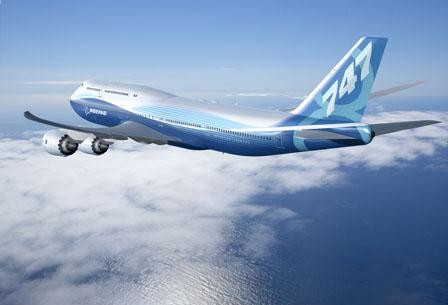Veiled behind procedural gimmickry and proposed jobs legislation, Senate lawmakers are expected to assume deliberation this week of the re-authorization of the federal Export-Import (Ex-Im) Bank, boosting its lending ceiling by $40 billion for a period of four years.
First created in 1943, this obscure government agency backs the purchase of American-made goods oversees with loans backed by the full faith and credit of the United States. The bank’s renewable charter first expired in September of last year, but Congressional leaders have quietly resuscitated it through temporary patches in spending measures.
In spite of the bank’s steep budget, its effect on the export of American goods has proven negligible. And as with all government subsidies, the necessary condition of market distortion has taken its toll: While these federal loans have seen prices of U.S.-made goods drop for a handful of foreign buyers, it’s seen increases for domestic purchasers and with it, job losses.
Among watchdog groups, it’s known as the Fannie Mae for exporters. Others still recognize it as the Boeing slush fund.
Despite weathering its own tussles with the administration’s bureaucratic overreaches, Boeing has been among the most gratified beneficiaries of government largess. In fiscal year 2009, the jet giant’s government-subsidized windfall registered north of $8.4 billion. The figure represented 90 percent of the bank’s loan guarantees for the year.
Ex-Im’s founding charter stipulates the bank endow only the coffers of credit-worth actors, yet it’s earned the ignominy of delinquent beneficiaries the world-over for its weak regulations.
For the purchase of 27 Boeing 787 aircrafts, Ex-Im has guaranteed $3.4 billion to Air India. Local press indicates, however, the carrier is as much as two months behind on its payments to the American government and remains in default on service tax payments to the Indian government.
According to estimates by jobs watchers, the U.S. airline industry, precluded from Ex-Im’s below-market rate financing, has hemorrhaged as many as 7,500 jobs as a consequence of government-issued loans to foreign carriers. Reviews of Ex-Im’s roster revealed similarly suspect lending to other Boeing clients, including Cathay Pacific and Air China.
Anticipating a tough slog to re-authorization, Senate Democrats have floated this week the inclusion of a jobs amendment to force Republican support for the re-authorization.
Democratic Senator Maria Cantwell, whose $23,000 haul from Boeing this year alone outpaces all her colleagues in the upper chamber, predictably said this week that “allowing the Ex-Im Bank to expire would be a crippling blow to our export economy.”
But the path for American exporters to balanced competition with their foreign competitors does not lie through a subsidy-driven dynamic whereby our government chooses winners and losers.
The law requires the Ex-Im Bank to analyze and ensure its actions are not having a harmful impact on American employers, yet that is exactly what is happening.
In the end, with serious reform and improved oversight – not reckless expansion exposing taxpayers – the Ex-Im Bank could be an effective, responsible advocate for our American businesses.
Without fundamental reform, however, the ramifications of government providing a blank check to an agency that manipulates the marketplace using funds guaranteed by the American people are crystal clear: when things go south, hardworking families are left holding the bag.

COMMENTS
Please let us know if you're having issues with commenting.